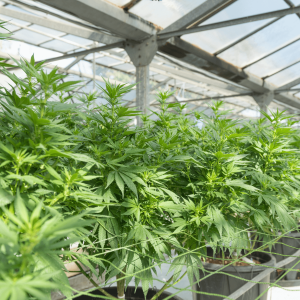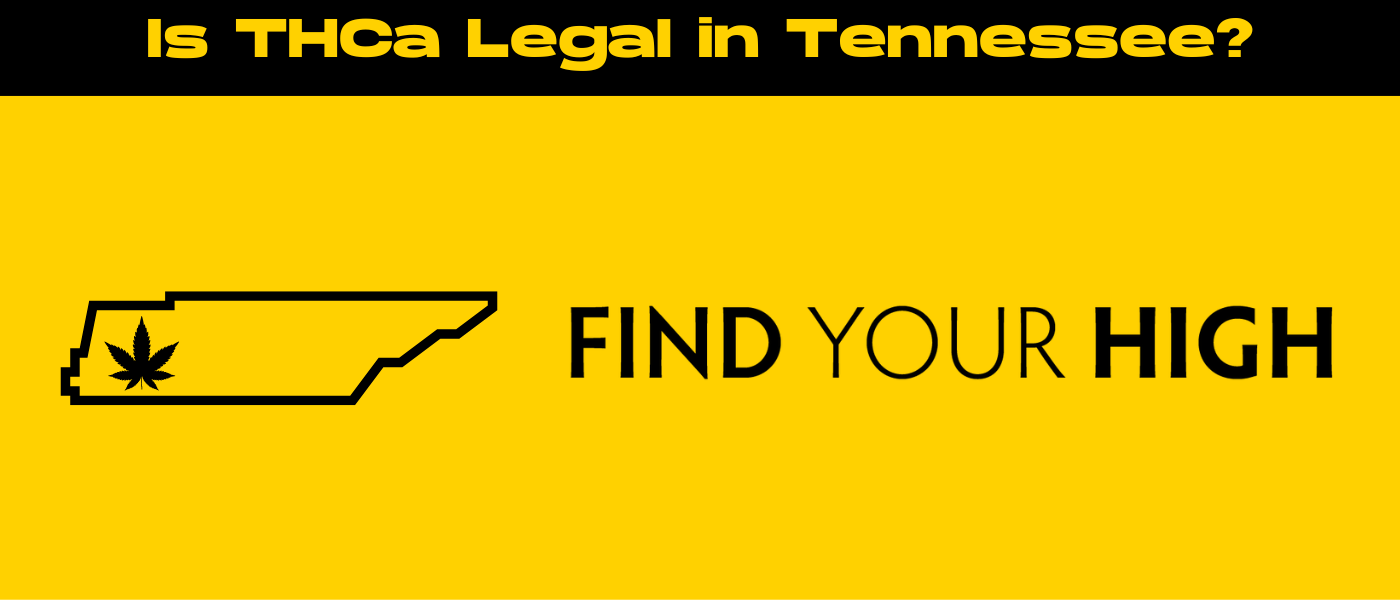The great people of Tennessee want to know: Is THCa legal in Tennessee?
As this question becomes more widespread, it’s important to dive into the complex world of cannabis legality in the United States. With changing laws and different regulations in each state, it’s crucial to understand the details of cannabinoids like THCa – a non-psychoactive form distinct from the more well-known THC.
While states take different approaches to marijuana legislation, Tennessee leans towards a conservative stance, trying to find a balance between potential medicinal benefits and regulatory statutes.
In this blog, we aim to shine a light on the various issues surrounding cannabis legality and specifically, the status of THCa in the Volunteer State.
Understanding THCa: The Non-Psychoactive Precursor to THC
THCa, or tetrahydrocannabinolic acid, is a cannabinoid found in raw and live hemp plants.
Differentiating it from its cousin, THC (tetrahydrocannabinol), is crucial: THCa is non-psychoactive, meaning it doesn’t produce the ‘high’ associated with marijuana. This compound naturally exists in the raw cannabis plant and serves as a precursor to THC — the substance that is most commonly associated with the effects of using cannabis recreationally.
The transformation from THCa to THC, known as decarboxylation, occurs gradually when the plant is dried, or immediately when it is exposed to heat, such as when cannabis is smoked or vaped. This chemical process involves the release of carbon dioxide, which converts THCa into psychoactive THC.
Understanding THCa is vital when discussing the legal aspects of cannabis because, though closely related, THCa and THC hold different statuses in the eyes of the law — but more on that later!

THCa and Tennessee State Law: Navigating the Statutes
Even though THCa doesn’t have psychoactive effects, its legality in Tennessee is subject to complex legal interpretations.
In the state’s cannabis-related statutes, THCa isn’t explicitly mentioned. Instead, Tennessee classifies substances based on the federal Controlled Substances Act (CSA), which considers marijuana and its derivatives as Schedule I controlled substances.
Currently, Tennessee lawmakers passed legislation that allows for the use of low-THC cannabis oils for patients suffering from certain medical conditions, under strict regulatory guidelines.
However, like in many states, the legal status of THCa remains ambiguous. The Tennessee Department of Agriculture prohibits all forms of marijuana except for CBD products with THC concentrations of not more than 0.3% on a dry weight basis – a measurement that doesn’t directly pertain to THCa.

THCa: A Legal Gray Area
This leaves the presence of THCa in a legal gray area. Since THCa can convert to THC upon decarboxylation, the interpretation of the law can be complex and subjected to legal scrutiny.
The difference between state and federal law further complicates the situation: while marijuana remains illegal federally, more states are adopting lenient policies that may or may not recognize the distinctions between these cannabinoids. Furthermore, newly proposed rules establish requirements to redefine THC to include THCa, which could put a future ban on THCa and CBD products.
In conclusion, under current Tennessee legislation, THCa straddles a fine line. However, any products containing THCa are still considered legal under a loophole. However, the legality of THCa products in the future depends on the evolving interpretation of state laws and the application of federal guidelines.
Comparisons with the Neighboring States
When you compare the legality of THC (note: NOT THCa) in Tennessee to its neighboring states, you can really see the difference in cannabis policies.
For example, states like Mississippi and Alabama also have strict cannabis laws, but they’ve started allowing limited medical cannabis programs in recent years. On the other hand, Virginia has taken big steps to legalize marijuana for recreational use, which includes THC.
This complicated patchwork of regulations across state lines makes it especially difficult to move cannabis products in the region.
As people cross from one state to another, they have to deal with a bunch of different legal frameworks. For example, a THC product that’s allowed under Tennessee’s specific conditions could be illegal just a few miles across the border, which could lead to some serious legal trouble.
So, the difference in state laws regarding THC not only affects accessibility for consumers, but it also creates significant challenges for businesses in the cannabis industry that want to serve clients in different states.
Final Thoughts on THCa and the Tennessee Legal Climate
In summary, the legal status of THCa in Tennessee hinges on its non-psychoactive nature, which is a crucial distinction from THC, which Tennessee law prevents.
As THCa does not produce a ‘high’, it currently remains in a legal loophole that separates it from the restrictions applied to its psychoactive counterpart. This situation creates a niche where hemp-derived products and hemp growers can be considered legal, even as the broader cannabis laws in Tennessee maintain a conservative stance.
However, the future of THCa’s legality is not set in stone. Ongoing legal challenges could redefine its position as state legislators and legal practitioners continue to wrestle with the implications of cannabis-related compounds and their place in the law. With evolving interpretations and potential changes to both state and federal guidelines, Tennessee residents find themselves navigating an uncertain legal landscape.
For those living in Tennessee or traveling to the state, it’s vital to stay informed about these developments. As laws around cannabis and its derivatives continue evolving, the specifics of THCa regulations may shift, potentially altering the accessibility and legality of these products.
In the end, it’s up to each person to stay updated on the changes and make sure they’re following the law according to law enforcement officials, while also being part of the ongoing conversation about cannabis legislation in the state.

Frequently Asked Questions
1. Can you buy THCa in Tennessee?
Due to the intricacies of Tennessee law, THCa is not explicitly outlawed. Therefore, it is possible to purchase hemp-derived cannabinoid products in a legal gray area.
2. Is THCa legal in the US?
Yes! THCa is protected under the federal hemp farm bill and a legal loophole that classifies the substance as non-psychoactive, and therefore, not illegal.
3. Do drug tests look for THCa?
Most standard drug tests are designed to detect THC, not THCa. However, since THCa can convert to THC in the body, there’s a possibility that the use of THCa could result in a positive test for THC, especially with prolonged or heavy use.
4. How potent is THCa?
In its natural, non-decarboxylated form, THCa is not psychoactive and does not produce a ‘high.’ However, its potency can become apparent if converted to THC through the process of decarboxylation, which is often induced by heat through smoking or vaporizing.

 Rewards
Rewards





